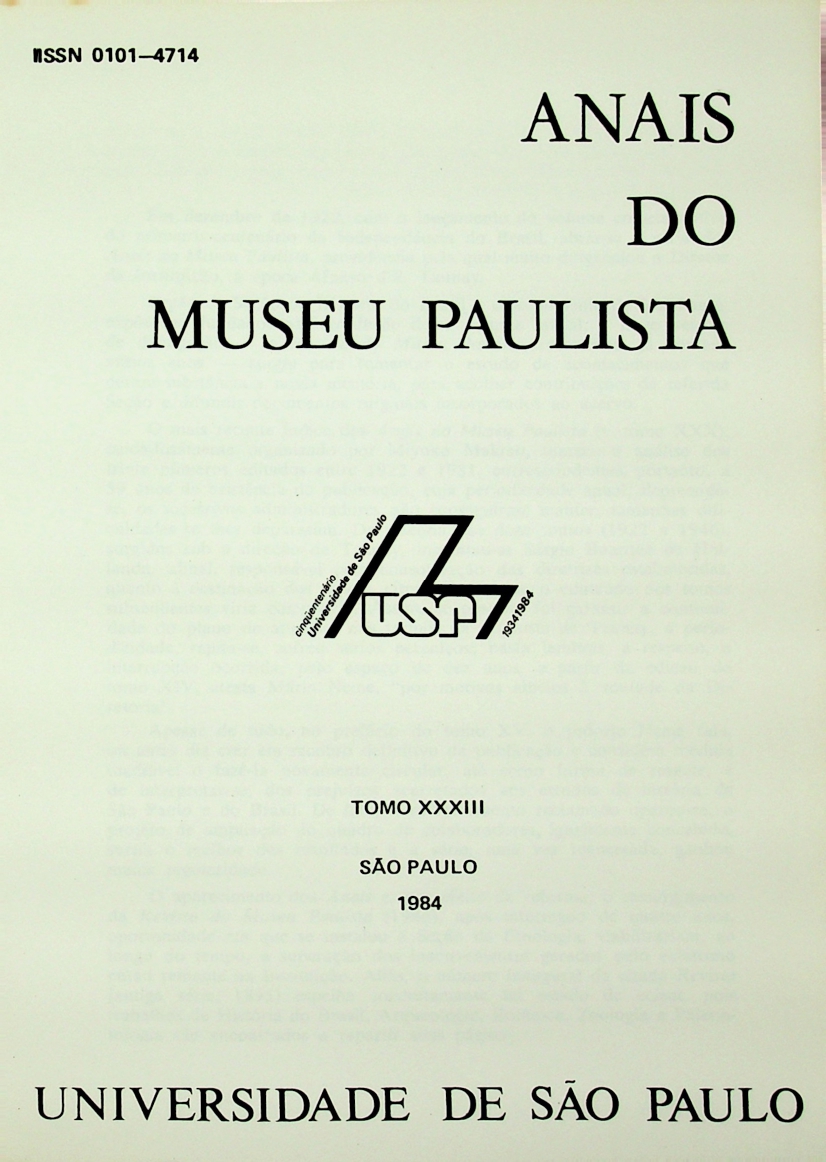A igreja no Brasil colonial: agentes da inquisição
DOI:
https://doi.org/10.11606/1982-02671984TomoXXXIIIe2Resumo
The Inquisition acted in Colonial Brazil through a body of agents known as “Commissioners” and “Familiars” of the Holly Office. Their function was to find the heretics and watch carefully the attitudes, actions, expressions of the brazilian population. This body of agents had the right to arrest suspects and confiscate their goods when they find it necessary. The interest in becoming “Familiar” was enormeous, due to the elevated status, highest prestige and increased priviligies which this tittle bestowed. To achieve such a title the candidate had to above all prove that he was of “pure of blood”, that he had not jewish, black, mulato or moor predecessors whatever. Corruption was common and the tittle of “Familiar” was often used without approval of the Holly Office of the Inquisition, merely to satisfy personnal interest. In this article we list the names of candidates, portuguese and brazilian born, who wished to become agents of the Holly Office but who were refused for various reasons, principaly due to jewish (or new christian) origin.
Downloads
Referências
Downloads
Publicado
Edição
Seção
Licença
Direitos autorais (c) 1984 Anita Novinsky

Este trabalho está licenciado sob uma licença Creative Commons Attribution 4.0 International License.
Autores que publicam nesta revista concordam com os seguintes termos:
- Autores mantém os direitos autorais e concedem à revista o direito de primeira publicação, com o trabalho simultaneamente licenciado sob a Licença Creative Commons Attribution que permite o compartilhamento do trabalho com reconhecimento da autoria e publicação inicial nesta revista.
- Autores têm autorização para assumir contratos adicionais separadamente, para distribuição não-exclusiva da versão do trabalho publicada nesta revista (ex.: publicar em repositório institucional ou como capítulo de livro), com reconhecimento de autoria e publicação inicial nesta revista.
- Autores têm permissão e são estimulados a publicar e distribuir seu trabalho online (ex.: em repositórios institucionais ou na sua página pessoal) a qualquer ponto antes ou durante o processo editorial, já que isso pode gerar alterações produtivas, bem como aumentar o impacto e a citação do trabalho publicado (Veja O Efeito do Acesso Livre).



